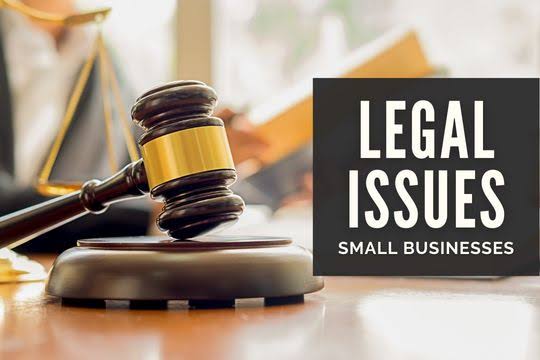
In the competitive landscape of entrepreneurship, launching a small business requires more than just a great idea and a solid business plan. Small business owners must also navigate the complex legal landscape, which can often be overwhelming and daunting for those who are not well-versed in legal matters. Understanding the legal considerations for small businesses is essential for ensuring compliance, protecting assets, and minimizing legal risks.
One of the key legal considerations for small businesses is choosing the right business structure. The structure of a business not only impacts how it is taxed but also determines the extent of personal liability for the owners. The most common business structures for small businesses include sole proprietorships, partnerships, limited liability companies (LLCs), and corporations.

Sole proprietorships are the simplest form of business organization, with the owner being personally responsible for all business debts and liabilities. Partnerships involve two or more individuals sharing profits and losses, with each partner being personally liable for the business’s debts. While sole proprietorships and partnerships are relatively easy to set up, they offer little protection to the owners’ personal assets.
On the other hand, forming an LLC or a corporation can provide limited liability protection to the owners, shielding their personal assets from business debts and lawsuits. LLCs offer flexibility in management and taxation, making them a popular choice for small businesses. Corporations, on the other hand, are separate legal entities that can issue stock and attract outside investors. However, forming a corporation involves more complex legal requirements and ongoing compliance obligations.
Another important legal consideration for small businesses is intellectual property protection. Intellectual property encompasses trademarks, copyrights, patents, and trade secrets, all of which are valuable assets that need to be protected. Trademarks protect a business’s brand names and logos, while copyrights protect original works of authorship, such as written content or artistic creations. Patents safeguard inventions and innovations, granting exclusive rights to the inventor.

Small businesses need to consider registering their trademarks and copyrights to establish legal ownership and prevent others from using their intellectual property without permission. Failing to protect intellectual property can result in lost revenue, reputation damage, and costly legal battles. Additionally, small businesses should also safeguard their trade secrets, such as formulas, processes, or customer lists, by implementing confidentiality agreements and security measures.
Employment law is another crucial legal consideration for small businesses, especially those with employees. Federal and state laws regulate various aspects of the employer-employee relationship, including wages, hours, discrimination, harassment, and workplace safety. Small businesses must comply with labor laws to avoid potential fines, lawsuits, and damage to their reputation.
Employment contracts, employee handbooks, and policies can help small businesses establish clear expectations, rights, and responsibilities for both employers and employees. It is essential for small businesses to stay up to date with changes in employment laws and seek legal advice when necessary to ensure compliance and mitigate legal risks.
Furthermore, small businesses must also be aware of their tax obligations and compliance requirements. Tax laws can be complex and may vary depending on the business structure, location, and industry. Small businesses are responsible for paying various taxes, such as income tax, payroll tax, sales tax, and property tax.
Maintaining accurate financial records, filing tax returns on time, and making timely tax payments are essential for avoiding penalties and IRS audits. Small businesses should consult with tax professionals or accountants to ensure proper tax planning and compliance with tax laws.
In conclusion, understanding the legal considerations for small businesses is vital for ensuring long-term success and sustainability. By choosing the right business structure, protecting intellectual property, complying with employment laws, and fulfilling tax obligations, small businesses can minimize legal risks and focus on growing their ventures. Seeking legal guidance from experienced attorneys or business consultants can provide small business owners with the knowledge and support needed to navigate the legal landscape effectively.
Coach Titilola Aboyade-Cole








